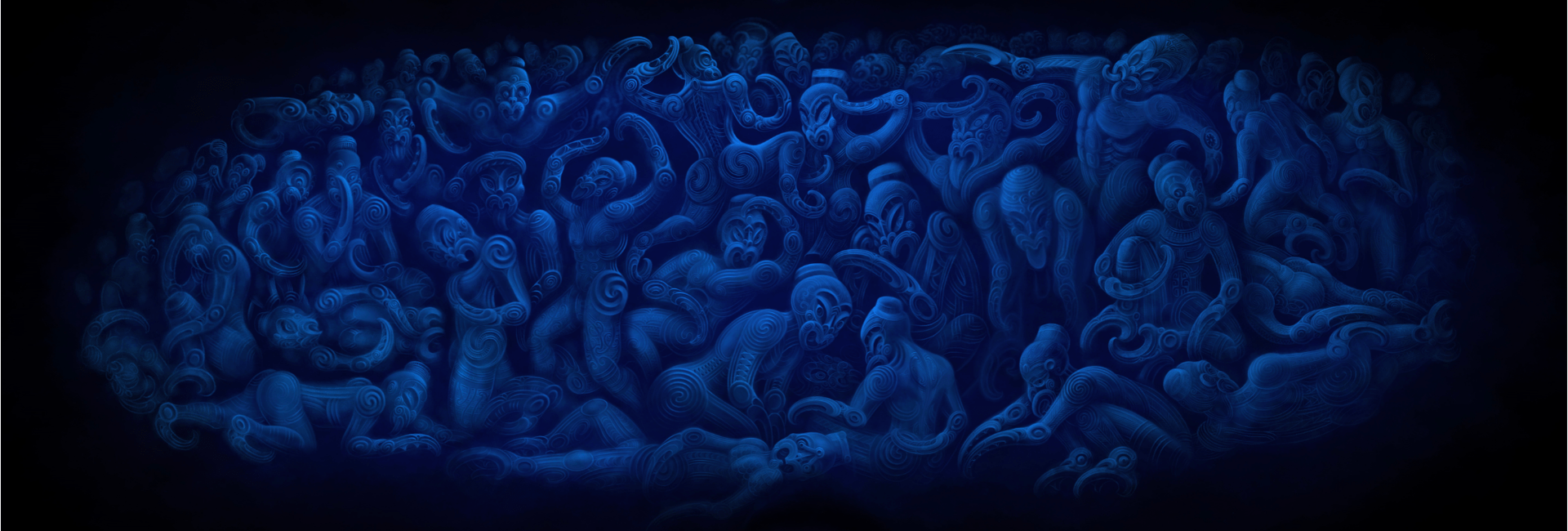Rangi Parauri Training - Becoming a Mataora
The Rangi Parauri training is designed to meet the needs of individuals, teams and organisations who work as practitioners in helping professions and want to become a Mataora. Mataora develop their own pukenga by embedding the Mahi a Atua principles in their lives. Because they prioritise oranga whakapapa a Mataora is trained to share pūrākau with whānau to reconnect whānau to their own stories.
Taku Whare Wānanga – Discovering You
Karakia – Tēnei te ara
Whakawhanaungatanga
Mahi a Atua Phases and Priniciple 1
Tēnei te po, nau mai te ao – learn about what indigenising your space meansTuituia – Introduction to how we use the pūrākau
Pūrākau – I noho tatapū ngā atua
Bron's blurb – Consolidate the pūrākau
Wānanga – Understanding the problem
Kaupapa kōrero – Institutional Racism
Mahi motuhake – How does racism manifest in my life?
Hinekauorohia – Reflecting on our day
Tuia Te Taiao – Finding your Position in your World
- Karakia – Tēnei te ara
- Whakawhanaungatanga
- Mahi a Atua phase – Te Po
- Tuituia – Introduction to how we use the pūrākau
- Pūrākau – The Early Battles, Huruteaarangi
- Bron's blurb – Consolidate pūrākau
- Wānanga – Flexible mindsets
- Kaupapa kōrero – Shifting mindsets
- Mahi motuhake – Tuteāniwaniwa and Huaki Pouri
- Tuituia – Introduction to how we use the pūrākau
- Hinekauorohia – reflections
Whakapapa of Emotion
Karakia – Tēnei te ara
Whakawhanaungatanga
Mahi a Atua Priniciple 2
Ka mā te ariki, ka mā te tauiraMahi a Atua phase – Te Whaiao
Tuituia – Introduction to how we use the pūrākau
Pūrākau – Uru te ngāngana
Bron's blurb – Consolidate pūrākau
Wānanga – Reconceptualising distress
Kaupapa kōrero – Maramataka, reconceptualising distress
Mahi motuhake – Maramataka wheels
Hinekauorohia – Reflections
Whakapapa of Knowledge
Karakia – Tēnei te ara
Whakawhanaungatanga
Mahi a Atua phase – Te Ao Marama
Tuituia – Introduction to how to use the pūrākau
Pūrākau – Tane te wānanga
Bron's blurb – Consolidate pūrākau
Wānanga – Rituals, getting more creative
Kaupapa kōrero – Feedback Informed Culture, Goal Setting and Design a strategy
Mahi motuhake – Building on your strategy
Hinekauorohia – Reflections
Creating a Culture of Change
Karakia – Tēnei te ara and pou hihiri
Whakawhanaungatanga
Mahi a Atua Priniciple 3
Hongihongi te wheiwheiā – Growing a culture of feedbackMahi a Atua phase – Te Ao Hurihuri
Tuituia – Introduction to how to use the pūrākau
Pūrākau – Te Ira Tangata, Mataora and Niwareka
Bron's blurb – Consolidate pūrākau
Wānanga – Whāia ngā mahi o Rarohenga
Kaupapa kōrero – Stepping into your power
Mahi motuhake – Whakaari, Concert, Whakangahau
Hinekauorohia – Reflections
Arotake
Arotake (Evaluation): Rangimatauru & Rangi Parauri
The pūrākau of Mataora, tells the story of an ariki (high chief) who had believed he was not accountable to anybody. However, guided by the love he had for his wife, Niwareka, Mataora became a kaitiaki for changing attitudes, beliefs and behaviour; firstly, his own and then actively influencing changes in those around him. Niwareka, who was gifted with all the healing properties of her tīpuna, would heal Mataora and play an important part in Mataora’s recovery. Guided by the knowledge embedded in the pūrākau of Mataora and Niwareka, Te Whare Wānanga o Te Kurahuna understands that addressing equity for Māori requires a uniquely transformative indigenous approach immersed in Te Ao Māori.
Kaupapa
Te Aka Whai Ora is supporting Te Kurahuna to deliver Rangimatauru and Rangi Parauri Mataora training to clinical and non-clinical Māori hauora workers. Included in this is an arotake (evaluation). As tauira in Rangimatauru and/or Rangi Parauri you play a key role in deepening our understanding of how the Mataora workforce is growing Indigenous innovation and change in Aotearoa.
Hei Mahi (Arotake Activities)
Ways you may contribute to the arotake include:
¨ Key themes emerging from tauira Ahi Kaa and other online mahi (e.g. Mahi Motuhake)
¨ Online surveys after completing Rangimatauru and Rangi Parauri
¨ Hongihongi te wheiwheiā wānanga as part of Rangi Parauri
¨ Mahi completed as part of Rangi Parauri Zoom Vision wānanga
¨ Being part of a smaller group where the arotake team will collectively wānanga with your rōpū over a longer period of time (‘cohort’ rōpū)
As a tauira in Rangimatauru and Rangi Parauri training, you are making a major contribution to system transformation in Aotearoa. The arotake is embedded in Mahi a Atua principles, and acknowledges and respects you, and all you whakapapa to. You, and any information you provide as part of the arotake will be treated with integrity and respect.
Data for the arotake will be analysed and key overall themes identified. Raw data collected specifically for the purposes of the arotake will be securely stored and accessible only to the kaimahi arotake. Collective sense-making processes which include Te Kurahuna kaimahi will take place only after data has been analysed to identify overall themes. Arotake report/s will be made available to you via the Mahi a Atua website.
The final report/s will likely include direct quotes from the arotake activities listed above. If you decide you do not wish to be quoted in the final report/s please advise us by email (lisa.cherrington@tekurahuna.com)
Kaimahi leading out the arotake are Mataora who have completed Rangi Parauri training. They are Dr Michelle Levy (Waikato, Ngāti Mahuta) & Lisa Cherrington (Ngāpuhi, Ngāti Hine).
If you have any concerns/feedback regarding the arotake you are welcome to contact Lisa Cherrington lisa.cherrington@tekurahuna.com
By signing up, I agree that I have read the information contained in this ‘Arotake (Evaluation): Rangimatauru & Rangi Parauri document and understand that the Te Aka Whai Ora funded Rangimatauru and Rangi Parauri training may include participation in the arotake activities described above.





